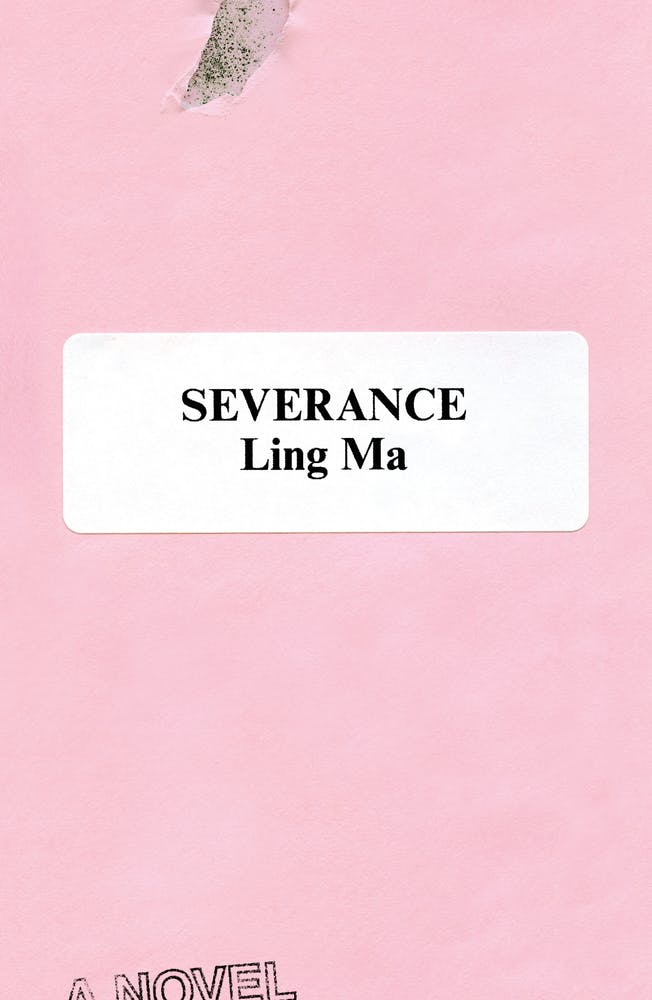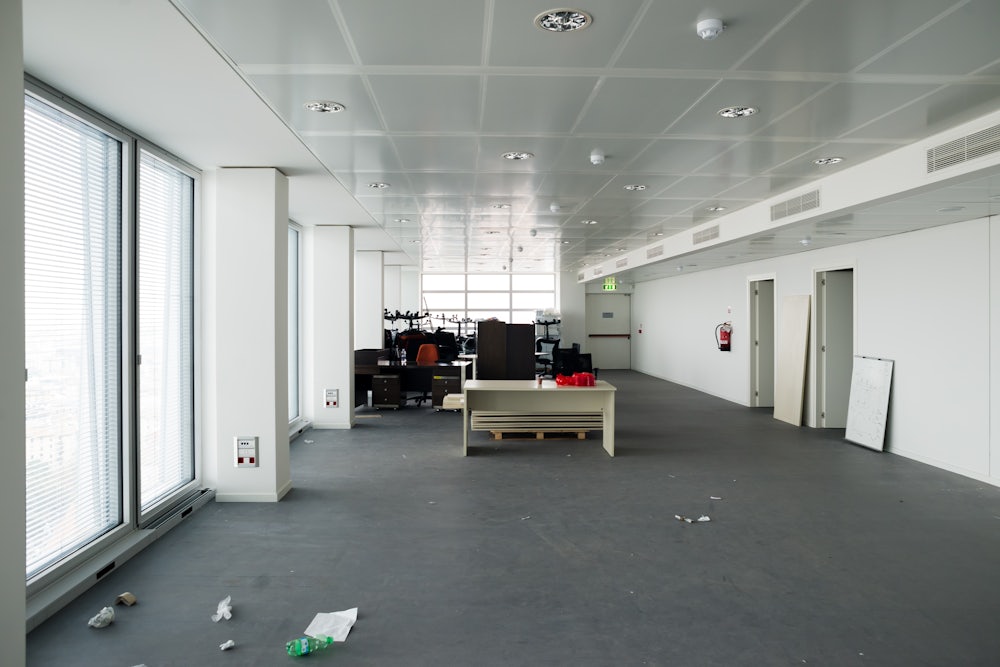Ling Ma’s debut novel Severance begins with the cryptic sentence “After the End came the Beginning.” The End here refers, naturally, to the end of the world. The Beginning, though, oddly points at once backwards and forwards in time: The Beginning is both the recent past, when things started to deteriorate, and the future, when survivors must try to adapt to the aftermath of catastrophe. “There were eight of us, then nine—that was me—a number that would only decrease,” Ma writes. “We found one another after fleeing New York for the safer pastures of the countryside. We’d seen it done in the movies, though no one could say which one exactly. A lot of things didn’t play out as they had been depicted on-screen.”

The parenthetical “me” in Ma’s opening soon turns out to be the novel’s protagonist: a 20-something Chinese-American woman named Candace Chen, who had, until the beginning of the end, been working in a publishing house in New York City. In alternating chapters, Candace moves between recalling her pre-apocalyptic existence (spending her days at a Manhattan office job and her nights with her boyfriend in Greenpoint) and describing her life “after the end.” What marks the end, readers soon learn, is a worldwide epidemic called “Shen Fever” that originates in Shenzhen, China’s primary manufacturing center. The disease is an airborne fungal infection that has spread to the rest of the world largely through commercial shipping routes. It is, in other words, a disease of global trade.
Casualties of Shen Fever are reduced to zombie-like behavior, as they obsessively repeat the same actions over and over again. Candace comes across a fevered girl who “was reading, or assuming the act of reading.” She notices the girl turn the page every few seconds and that “as she read, she chewed her hair, a strand in her mouth. In fact, she was literally chewing all of her hair off.” An FAQ sheet informs survivors that patients “may appear functional and are still able to execute rote, everyday tasks.” That the symptoms of Shen Fever so closely resemble the monotonous performance of office work is not lost on readers.
Severance shares, in fact, many of the concerns of Colson Whitehead’s 2011 post-apocalyptic NYC zombie novel Zone One, which takes place in similar corporate settings. Like Zone One—which includes the observation that “New York City in death was very much like New York City in life”—Severance plays with the idea that life after the apocalypse is much like life before it. “How do we know,” someone asks Candace at one point, “that you’re not fevered yourself?” It’s going to take more than a zombie plague, Ma appears to say, to undo our hard-wired reliance on the routines and logic of late capitalism.
Before the apocalypse hit, Candace specialized in the production of both coffee table art books and decked-out Bibles. While her employer, Spectra, was based in New York, her work involved frequent trips to Shenzhen, as well as to its flashier neighboring cosmopolis, Hong Kong. Although “art books” implies that Candace did creative work, Ma focuses on the mechanics of book production, which range from visits to paper mills to observe embossing tests, to calculating rates of shipping and exchange, to making sure the proper semiprecious gemstones arrive in time to adorn the special edition “Gemstone Bible.” Besides the winking irony that Candace works on the book of Genesis only to live through the end times, Ma’s close attention to Candace’s detail-oriented work also gives her a chance to document the laboriousness of the office.
Yet Ma doesn’t portray drudgery as wholly bad: It is the routine of working life, after all, that keeps Candace afloat when the world starts to end. As the epidemic draws everyone back to their dwindling families, only the orphaned Candace keeps returning to the office day after day. The ritual of routine moors her. She reflects on what it means to adapt to a city, in a passage that reads almost like prayer:
To live in a city is to take part in and to propagate its impossible systems. To wake up. To go to work in the morning. It is also to take pleasure in those systems because, otherwise, who would repeat the same routines, year in, year out?
Marxist theorist Fredric Jameson famously wrote that it was “easier to imagine the end of the world than to imagine the end of capitalism.” In Severance, this is not straightforwardly a bad thing. At the end of the world, Candace continues to work not because it is socially productive or financially necessary, but because it is personally, indeed psychically grounding. The office has the potential for salvation, however temporary.
For Candace particularly, routines hold a special promise. She recalls her youth in China, when her life was “so steady and constant and regulated”—a constancy she has tried to recreate as an adult. She finds some part of this, perhaps, in the familiar uniformity afforded by late capitalism. When the family moved to the United States, Candace saw her mother turn to American consumerism for solace. She loved American freeway driving (speed!) and American shopping (bounty!). “Her homesickness eased,” Candace remembers, “in department stores, supermarkets, wholesale clubs, superstores, places of unparalleled abundance.”
Just before the fever turns into an epidemic, Candace’s white, long-term boyfriend Jonathan decides he’s finally leaving New York City. Jonathan is a creative type (a fiction writer no less) who quit his day job long ago, and wants to “opt out” of the system—to say goodbye to all that. His plan is to sail to Puget Sound with friends and then maybe settle down in Oregon somewhere. Will Candace come with him? She feels the impulse (not a little influenced by her deceased immigrant parents) to remain in New York City. To keep working. To keep striving. They break up.
What Jonathan doesn’t know is that Candace is pregnant with their child and that she intends to keep it. When Candace eventually leaves New York and joins the other survivors roaming the country, it is her capacity to carry new life that renders her valuable to the group. Candace embodies the future, and when the group senses her desire to leave them, they lock her up. The situation is almost comical, as the group—now squatting in a suburban Illinois mall—detains Candace inside a L’Occitane store.
When Candace finally escapes and starts driving to Chicago—once home to Jonathan and the city where her mother always wanted to live—she begins to imagine “another life … my mother’s alternate life.” Flirting with the genre of the alternative history novel, Ma has Candace recall an Occupy Wall Street protest with “young, healthy protesters chanting,” who take off “their masks so their voices could be heard more loudly,” which “only seemed to enrage the public.” But the movement, she predicts, will be deemed “decadent and out of touch” as more and more people succumb to Shen Fever.
In another, more personal conjecture, Candace envisions a life in Fuzhou, where she grew up, where she would be “fenced in by towering mountains and bounded by a boundless sea … where the palm trees sway and the nights run so late.” These are some of the novel’s dreamiest passages—explorations of what might have been as well as what still could be. At the same time, their hypnotic cadence sounds uncannily like some of the novel’s more banal descriptions of life as a zombie under late capitalism. Is it possible to imagine a future that isn’t at least somewhat tinged by the feverish traces of our collective past? It certainly becomes difficult to do so while reading Ma’s novel, in which all of life—whether before or after the apocalypse, in America or in China—is rendered through the same devastatingly lyrical prose.
Severance is the most gorgeously written novel I’ve read all year; when I finished it, I immediately picked it up and read it all over again. As Candace says at one point while watching a zombie, “You could lose yourself this way.” After the End came the Beginning.
